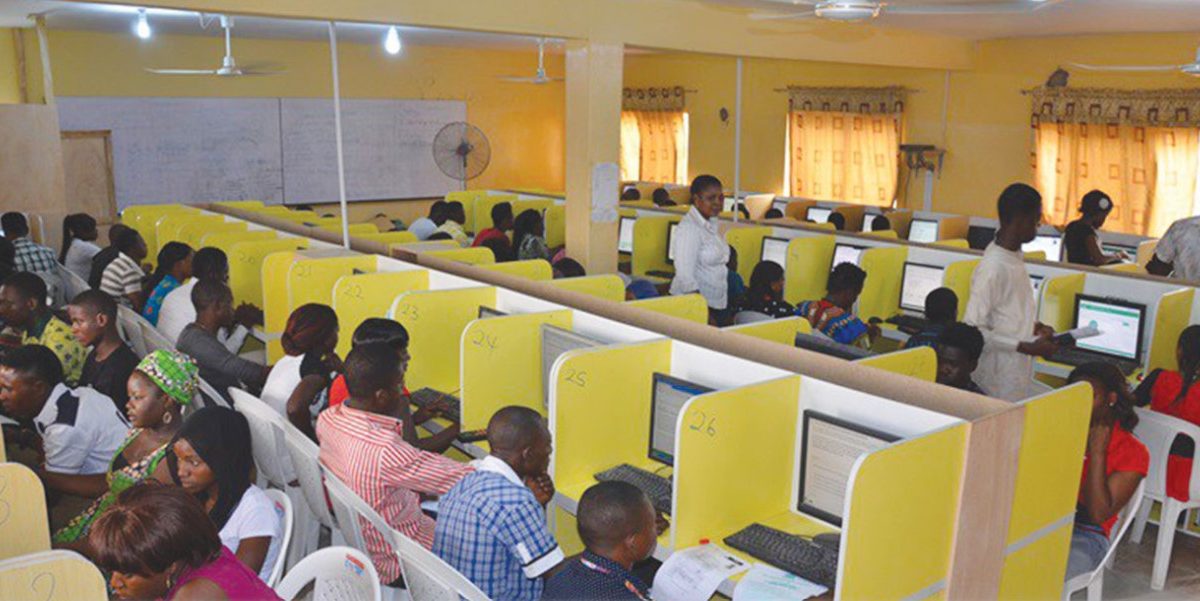
Mixed reactions trail JAMB’s cut-off marks To Institutions
- Education
- No Comment
- 956
The decision by the Joint Admission and Matriculation Board (JAMB) to peg the minimum cut-off mark for admission into the country’s universities at 140 for the 2022/2023 academic session is currently generating ripples.
While some described the development as a setback for the nation’s education, others said that lowering the cut-off marks was good news for admission seekers.
A Professor of Botany at the University of Nigeria, Nsukka (UNN), Prof Joseph Edwards, said lowering UTME cut-off marks would jeopardise the nation’s education standard.
He argued that a student, who cannot score 200 out of 400 marks in UTME, may find it difficult to excel when admitted.
Edwards noted that such students, when admitted, would not be able to cope with their mates and would end up re-sitting their papers.
He said federal universities were still finding it hard to accommodate many of the candidates, even at the cut-off marks of 200 and above, not to talk of when it was dropped to 140.
He appealed to JAMB to dialogue with universities to be advised accordingly on admission scores.
Also, Prof. Dada Oluokun of Ekiti State University said the continuous lowering of UTME cut-off marks would definitely affect the quality of applicants being offered admission into federal universities.
“It only encourages applicants, whose parents are wealthy to patronise private universities and this may affect standardisation of admission,” Oluokun said.
But Prof. Clement Kolawole of the Department of Education, University of Ibadan, said there would be no serious implication. “It was what the agency considered to be realistic,” Kolawole said.
This, Onuka said, could be due to some intervening factors that were likely to be multifarious, such as family, social, school and funding factors, among others.
“The immediate implication is that our school system is not living up to expectations in the production of future leaders for the nation; as garbage in equals garbage out. It means that we are feeding the tertiary education system with ill-prepared inputs and the outputs would, therefore, be half-baked.
“It’s not the duty of the tertiary education system to prepare learners for the primary and secondary education system, which are the foundation for the tertiary education system.
The don said the situation could also lead to a greater exodus of youths to other climes and further depreciate the Naira, as a result of a higher rate of capital flight.
“Thus, all hands must be on the deck to address the abnormality with immediate effect. In fact, we need to declare a state of emergency in the education sector.
“We must fund it and carry out research so that innovative measures and remedies can be evolved to bring our education system back on track.
“Needs assessment of the sector, in terms of quality of teachers at the primary and secondary sub-systems, infrastructure and facilities, management and governance, as well as teaching and learning interactions and parental responsibilities, should be immediately done before any other process is carried out.
“This is to properly evolve lasting and enduring solutions to this unexpected outcome in the education system,” he said.
An educationist, Dr Tony Onuoha, expressed concern over the matter, warning that the trend would ultimately destroy the fabrics of education system in the country.
Adeleye lamented that the standard of education at the tertiary level would continue to dwindle with such a policy.
“I don’t see any sense in lowering the cut-off marks, I don’t know why the administration handling JAMB is bent on reducing the cut-off marks yearly and destroying the lives of students. Are we saying that hard work doesn’t matter these days? These days, some students cannot even express themselves or write fairly well, and one wonders how they got into tertiary institutions.
“We have destroyed values, morals and hard work and we need to go back to where we are coming from. Students, who are supposed to be in technical schools, are finding their way into universities. It is not that technical schools are not good; they have their own advantages because they help to fix students into places where they are best fitted for the purpose of further grooming,” he said.
Dr Adeola Adeniyi, an education consultant, said the trend would encourage laziness and discourage healthy competition among students.
A public analyst, Ola Bamigboye, justified the lowering of the cut-off marks, saying the decision would create a level playing field for students seeking admission into tertiary institutions.
Bamigboye argued that the continuous lowering of UTME cut-off marks would not affect education standards.
He said: “When it comes to the standard of admission, what really matters is the result of the West Africa Examinations Council (WAEC).”
He noted that UTME result is only a prerequisite requirement for admission, adding that what qualifies a student are the five ‘O’ Level credits in relevant subjects.
According to him, some of those who scored 180 get admission to make first-class or end up being the best graduating students. “We have also seen students who scored 360 in UTME, but could not compete with those who scored 180.”
A retired school Principal and Administrator, Moses Elujoba, said the lowering of cut-off marks would create room for laziness among students. “Instead of them working and studying hard to achieve the desired excellent grade in the entrance examinations, they will only prefer to limit their scope towards their now reduced cut-off marks,” he said.
Onyiogbo explained that lowering of UTME cut-off mark had just shown the deliberate tendencies to bastardise the tertiary education system.
“How can JAMB give a student, who scored just 140, which is equivalent to about 35 per cent of 400, a pass mark to be admitted into a university? I want to say that any student, who cannot score at least 180, has no business in the university. I will like to appeal to the Federal Government and JAMB to reconsider their plans to lower the UTME cut-off marks and stop bastardising tertiary education in Nigeria,” he said.
In the same vein, Mr Suleiman Yusuf of the Mass Communication Department, Kwara State University (KWASU), Malete, said he could not conceive the rationale behind the decision to lower the mark.
”Despite the fact that there is a clause, which empowers individual universities to fix its own cut-off marks, it still gives room for the age-long lopsidedness in the admission policies and procedures of Nigerian universities.”
But reacting, JAMB clarified that it is the responsibility of tertiary institutions to decide and determine their admission cut-off mark and not JAMB as was widely believed by candidates.
JAMB spokesman, Dr. Fabian Benjamin, said there is nothing like a uniform minimum national UTME score for tiers of tertiary institutions, neither does JAMB decide any such requirement for any institution for the purpose of admissions.
By Iyabo Lawal
https://guardian.ng/features/mixed-reactions-trail-jambs-cut-off-marks-to-institutions/




